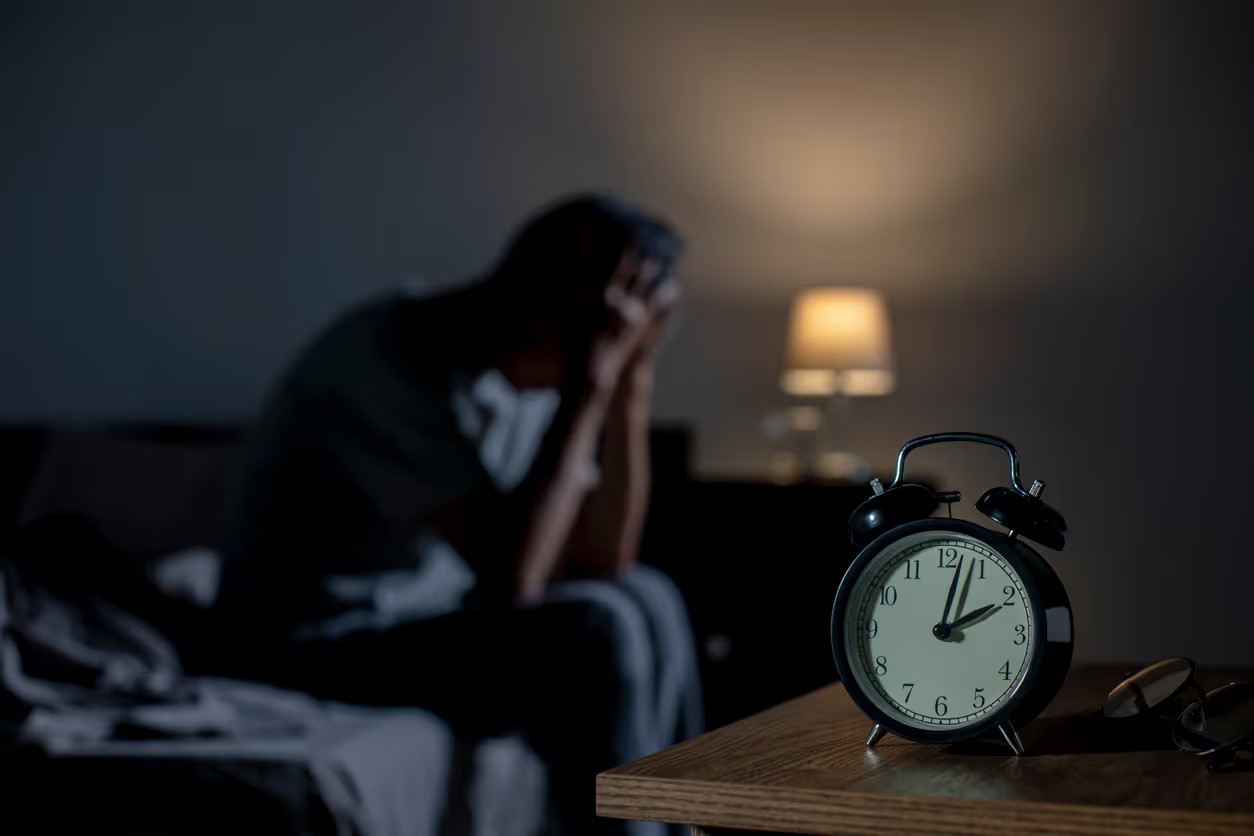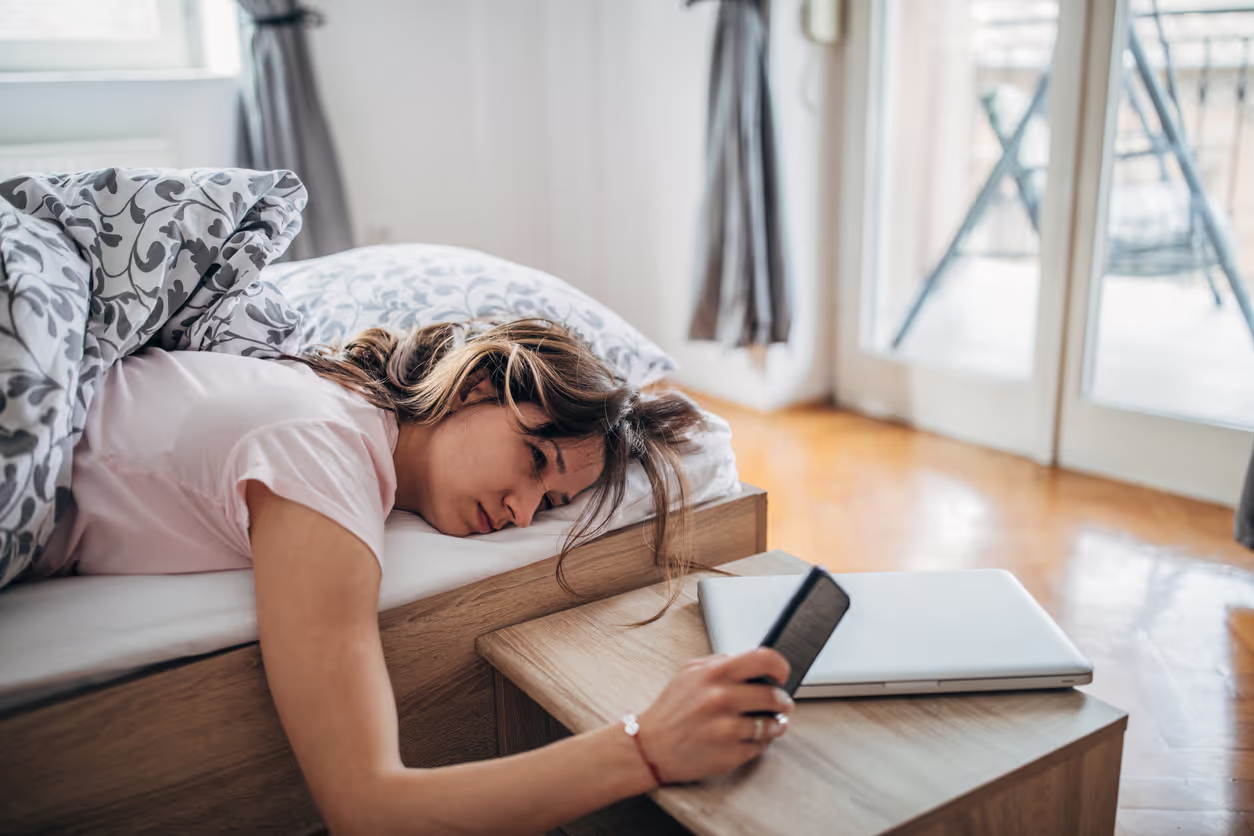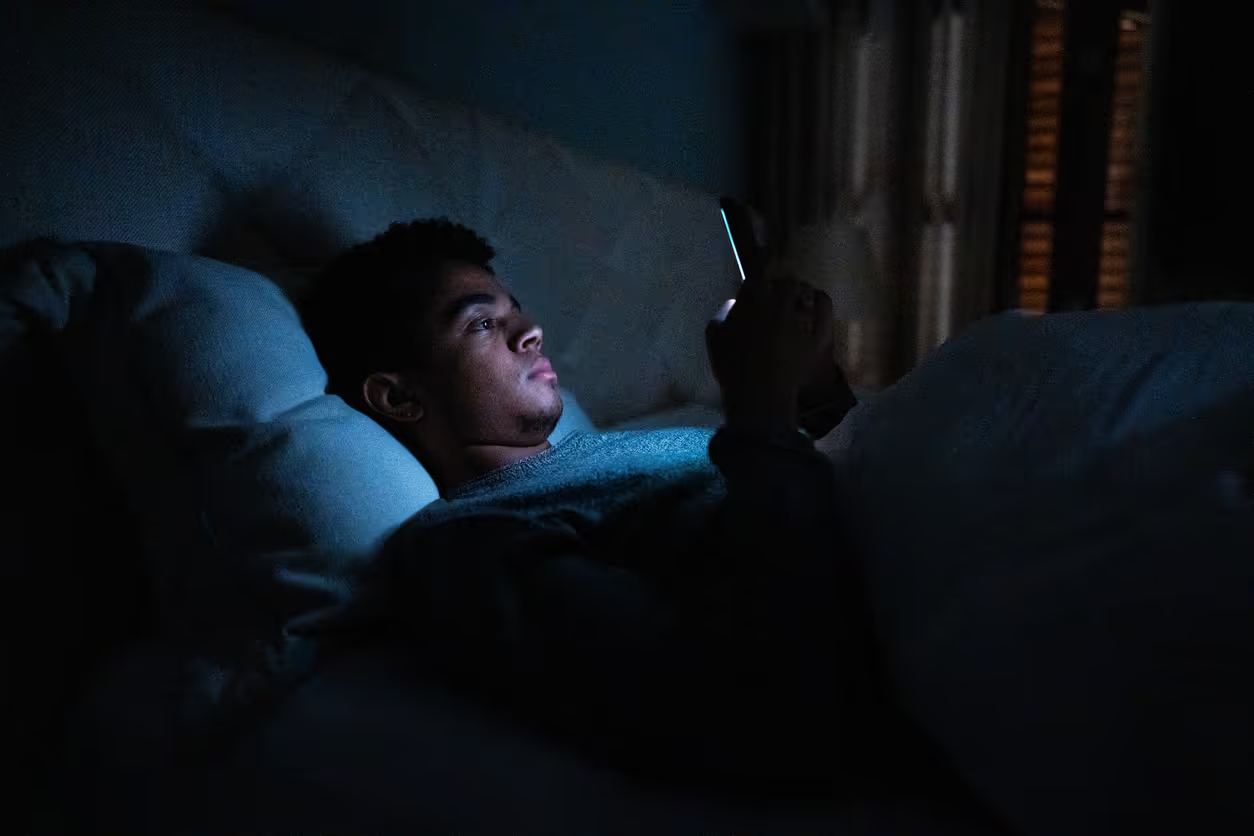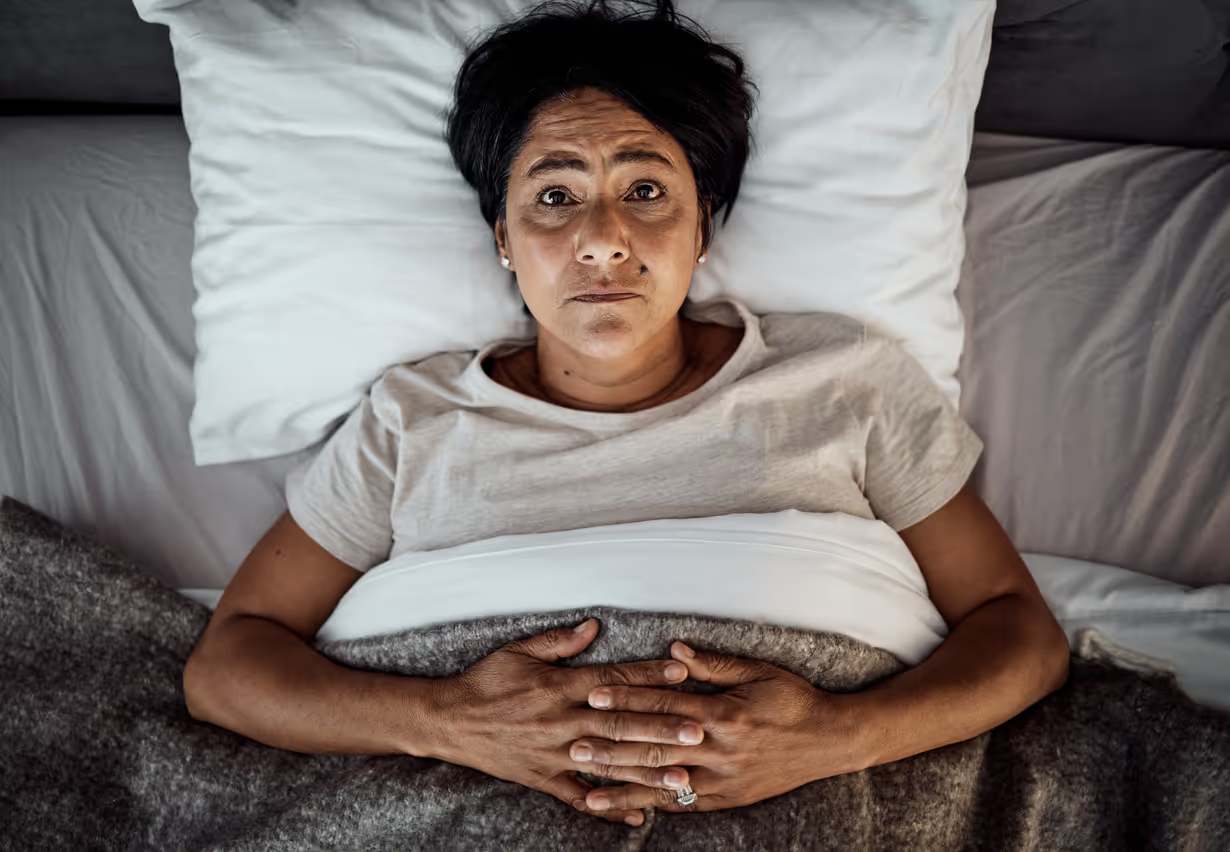How anxiety affects sleep (and how to break the cycle)

What to do when you can’t sleep because of anxiety
If you can’t sleep because of anxiety, you're far from alone. Anxiety-related insomnia is one of the most common sleep issues—and one of the most frustrating. Your body may be tired, but your brain feels stuck in overdrive, replaying worries, what-ifs, and worst-case scenarios long after the lights go out.
Unfortunately, anxiety and sleep problems often feed each other. The more anxious you feel, the harder it is to fall asleep. And the less sleep you get, the more anxious you become. This creates a vicious cycle that can be hard to break without the right tools and support.
Here’s how anxiety affects your sleep—and what you can do to finally get the rest your body and mind need.
If you want to know more about your sleep health, try taking our comprehensive free Sleep Assessment and in only a few minutes of answering questions you will receive a free Sleep Health Report.
We have successfully treated insomnia and other sleep disorders for more than 40+ years. Our protocols are proprietary—a direct result of practitioner feedback from thousands of client sessions and training cohorts—meaning more precise, individualized, and trusted outcomes than off-the-shelf CBT‑I. Find out how we can help you achieve lasting improvements to your sleep health, general health and wellbeing. Start your journey here.
How anxiety disrupts sleep
When you feel anxious, your body enters a state of heightened alertness. Your heart rate increases, your breathing becomes shallow, and your mind races—all signs of a fight-or-flight response. This physiological arousal is designed to keep you awake and alert, not to help you sleep.
Common signs you can’t sleep because of anxiety include:
- Trouble falling asleep even when tired
- Waking up in the middle of the night with racing thoughts
- Physical tension (tight chest, clenched jaw, restlessness)
- Worrying about not being able to fall asleep—leading to more sleeplessness
The anxiety–insomnia cycle
Lack of sleep amplifies the brain’s emotional centres, making it harder to regulate stress and worry the next day. This leads to more anxiety, which leads to more insomnia, and so the cycle continues.
Over time, your brain may even start to associate your bed with stress instead of sleep—a learned pattern that keeps the cycle going even when the original source of anxiety is gone.
How to break the cycle: proven tips
1. Get out of bed if you’re not sleeping
If you’re lying awake for more than 20–30 minutes, get up and do something calming in dim light—like reading or stretching. This helps retrain your brain to associate your bed with sleep, not stress.
2. Use breathing and grounding techniques
Try the 4-7-8 breathing method or box breathing to calm your nervous system. Mindfulness-based apps like Headspace or Insight Timer also offer guided sleep meditations for anxiety.
3. Challenge anxious thoughts
Cognitive Behavioural Therapy for Insomnia (CBT-I) includes tools to help you identify and reframe anxious thinking. If your thoughts sound like “I’ll never fall asleep” or “Tomorrow will be a disaster,” work on replacing them with more balanced thoughts like “Resting is still good for me” or “I’ve gotten through tired days before.”
4. Set a wind-down routine
Start winding down at least 60 minutes before bed. Dim the lights, put your phone away, and engage in calming activities like journaling, reading, or a warm bath. This signals to your body and brain that it’s time to relax.
5. Consider working with a sleep therapist
If anxiety keeps interfering with your sleep, it may be time to seek professional support. A therapist trained in CBT-I can help you untangle anxious thought patterns, improve your sleep habits, and rebuild your confidence in your ability to sleep.
Final thoughts
If you can’t sleep because of anxiety, know that this is a treatable problem—not a permanent one. With the right combination of strategies, support, and consistency, you can quiet your mind, break the anxiety-insomnia loop, and finally get the rest you deserve.
Better sleep starts with understanding—and action. One small change tonight can lead to real results over time.
Frequently asked questions
What is anxiety-related insomnia?
Anxiety-related insomnia is when worry, fear, or stress interferes with your ability to fall or stay asleep. It’s one of the most common forms of insomnia and can create a cycle where lack of sleep increases anxiety.
Will my sleep improve if I manage my anxiety?
Yes. Reducing anxiety can have a significant impact on your sleep quality. As your nervous system calms and anxious thoughts lessen, it becomes easier to fall asleep and stay asleep through the night.
Can breathing techniques really help me sleep?
Absolutely. Breathing techniques like 4-7-8 or box breathing can activate your parasympathetic nervous system, helping your body relax and prepare for sleep.
Should I avoid screens before bed?
Yes. The blue light from phones, tablets, and TVs can suppress melatonin (your sleep hormone) and make it harder to wind down. Aim to stop screen time at least 30–60 minutes before bed.
How long will it take to fix my sleep if I follow these tips?
Everyone is different, but many people see improvements within a couple of weeks if they stay consistent. If anxiety continues to disrupt your sleep, it may be worth connecting with a professional.
Book a time with one of our sleep specialists to get your sleep back on track.






